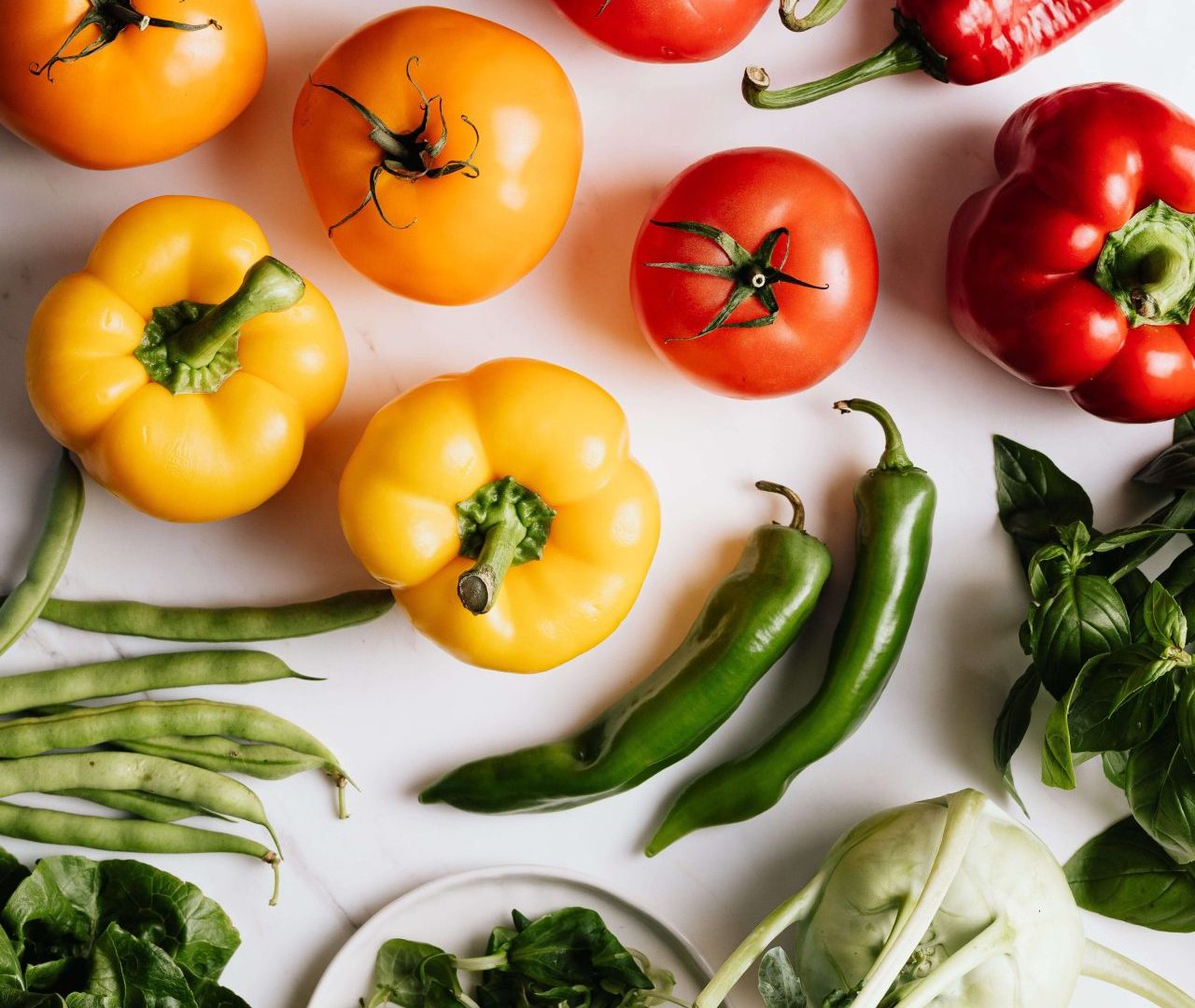
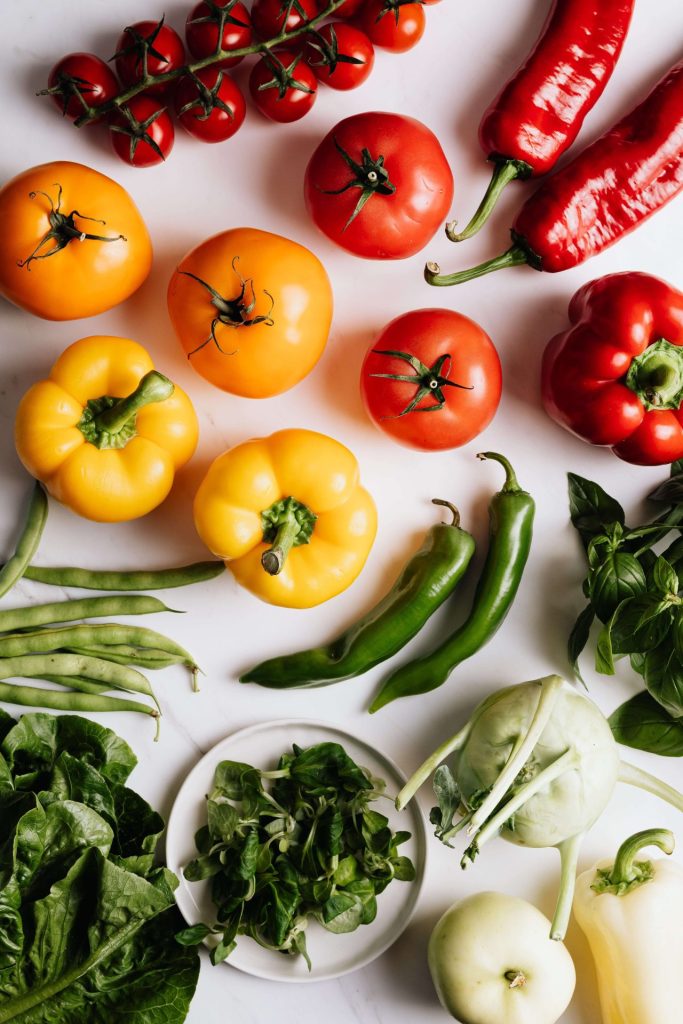
The Mediterranean diet is celebrated for its delicious flavors and numerous health benefits. But, you might wonder, can you maintain this wholesome diet without breaking the bank?
With a smart shopping list and mindful choices, you can enjoy the Mediterranean diet without overspending, regardless of your budget!
Below, we’ve categorized the key and most popular ingredients you’ll want to include in your grocery list, making it easier for you to plan your Mediterranean diet friendly meals.
Fresh Vegetables
Fresh Fruits
Whole Grains
Healthy Oils
Lean Proteins
Nuts & Seeds
Herbs & Spices
Smart Shopping Tips
At the core of the Mediterranean diet are fresh and seasonal vegetables. To keep it budget-friendly, opt for vegetables that are in season or frozen.
Vegetables for Your Shopping List:
Recommended Servings: 4 or more servings of vegetables daily. Vegetables should be the “star of the show” in all of your meals.
Tips: Most vegetables are friendly to the Mediterranean diet, so don’t restrict your choices. To make the most of your fresh produce, consider easy preparations such as creating Greek salads or oven roasted vegetable medleys on a sheet pan.
Fresh and seasonal fruits are another cornerstone of the Mediterranean diet.
They not only provide natural sweetness but also a wide range of vitamins and minerals. Again, opt for local and seasonal fruits to save money.
Fruits for Your Shopping List:
Recommended Servings: Aim for at least 2-3 servings of fruits daily. Try to use fruits as snacks, desserts, or toppings in salads.
Tips: Fruits are more affordable when they are in season. Consider buying extra and freezing them for later use in smoothies or yogurt.
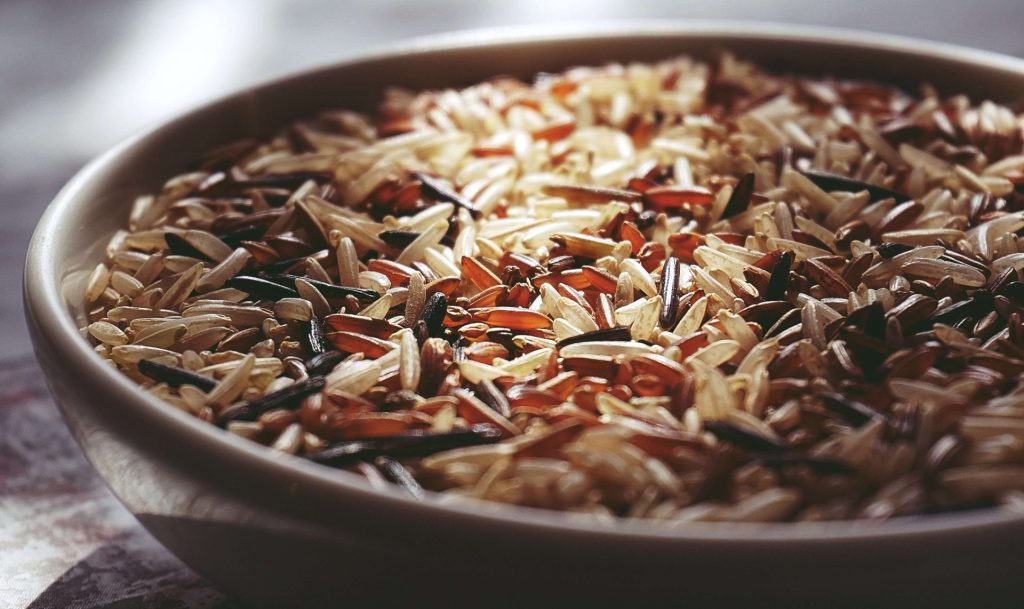
Whole grains can serve as the foundation for many Mediterranean dishes while adding essential dietary fiber.
Whole Grains for your Shopping List:
Recommended Servings: 3 to 6 servings per day. Consider using whole grains in most of your meals.
Tips: Buy grains in bulk to reduce costs and explore different recipes for Greek bowls or stuffed peppers using whole grains as the base.
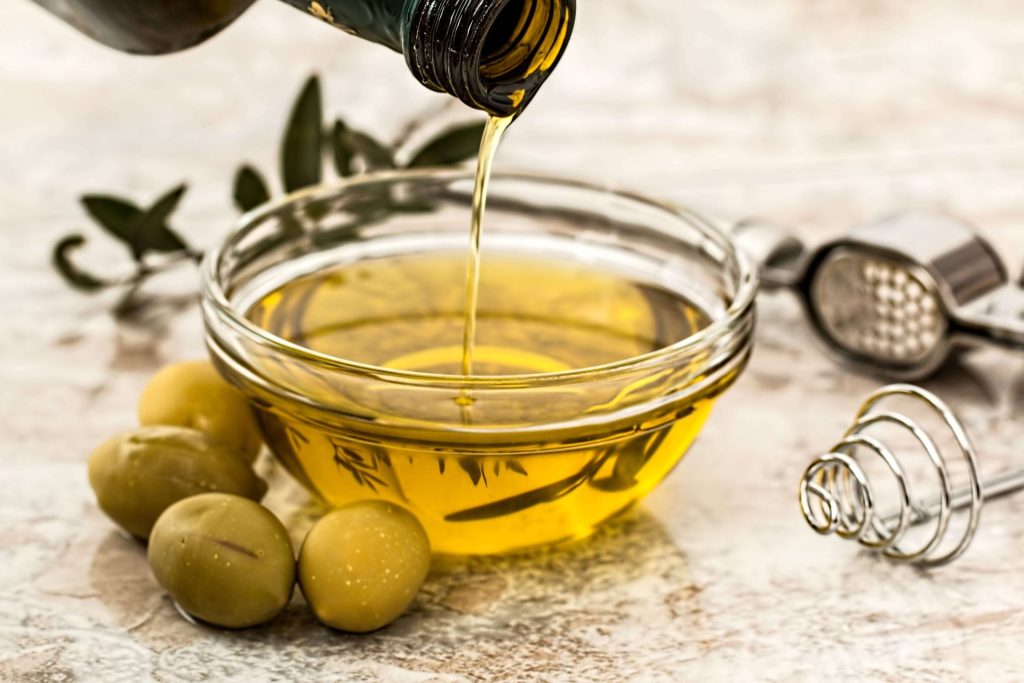
Extra Virgin Olive Oil takes center stage as the primary source of cooking oil and is a delicious healthy fat in the Mediterranean diet.
Healthy Oils for your Shopping List:
Recommended Servings: Use olive oil as your primary cooking oil and in salad dressings. There are no strict limits, but moderation is key.
Tips: Purchase olive oil in larger containers or in bulk for better value.
Try exploring various Mediterranean dishes like hummus drizzled with olive oil, a traditional Greek food favorite like “Imam Bayildi”, or other “ladera” dishes (vegetables cooked in an olive oil based sauce).

Lean proteins can help maintain a balanced diet and can give you an extra boost of protein with your meals.
However, it’s important to note that if you follow a vegetarian or plant-based diet, you can easily meet your protein needs by incorporating more plant-based protein sources.
Lean Proteins for your Shopping List:
Recommended Servings: Aim for fish and seafood at least twice a week, poultry occasionally, and plant-based proteins, such as legumes, several times a week.
Tips: Purchase frozen fish in bulk or when on sale. To make the most of your leftovers, consider incorporating them into small Greek appetizers (like Greek Tuna Salad) rather than throwing them out.
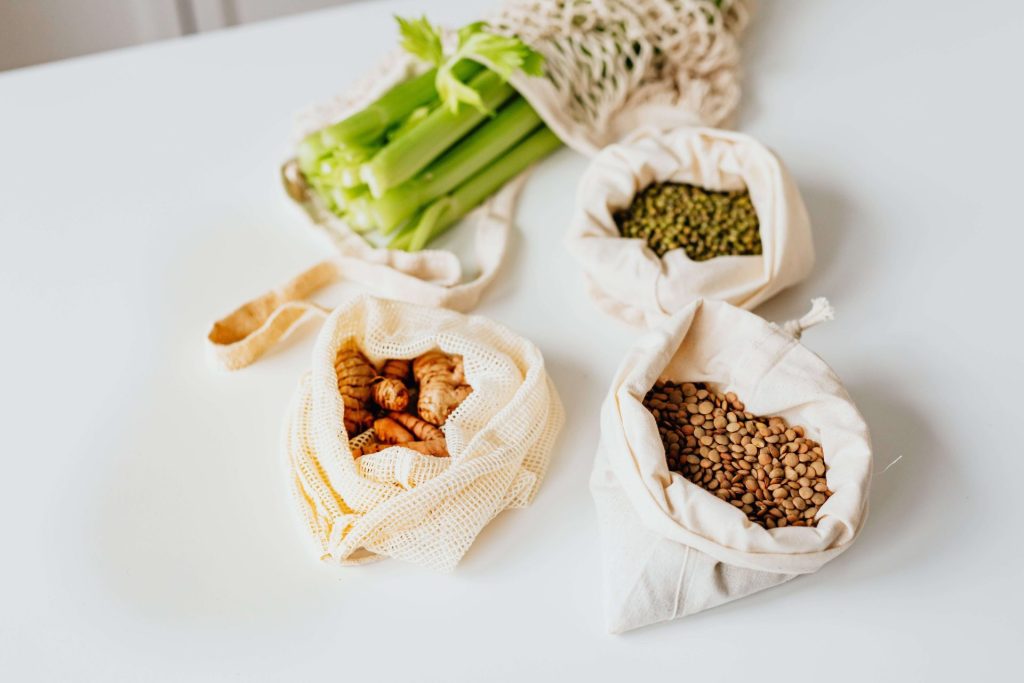
Incorporating beans, nuts, & seeds into your Mediterranean diet not only provides you with good sources of protein, healthy fats, fibers, vitamins, and minerals but also gives variety to your meals.
Nuts & Seeds for your Shopping List:
Recommended Servings: Aim to eat 3-4 servings of beans per day and 1-2 servings of nuts & seeds per day.
Tips: Sprinkle nuts & seeds on salads, yogurt, or oatmeal for added texture and nutrition to your main course or Mediterranean side dishes. Try exploring some of our favorite traditional Greek foods like Greek giant beans in tomato sauce, chickpeas with onions & carrots in lemon sauce, or fava beans with onions and lemon juice!
Mediterranean dishes come to life with the infusion of aromatic herbs that burst with flavor. Don’t leave out these essential Mediterranean spices when creating your next Mediterranean masterpiece.
Herbs & Spices for your Shopping List:
Tips: Having a variety of dried herbs and spices will add depth to your dishes, but only buy what you need for the dish you’re making.
Eventually, over time you will acquire all of the delicious Greek spices you need. Experiment with different combinations to create your signature Mediterranean flavors.
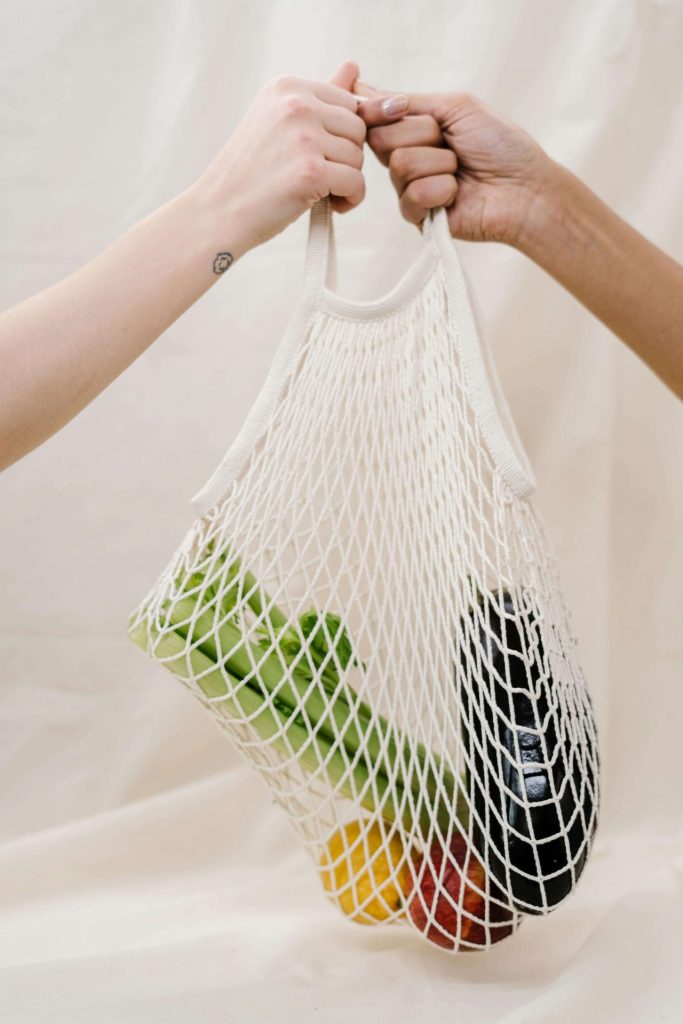
Here are some additional tips to make the most of your Mediterranean diet shopping list while staying within your budget:
Buy in bulk: Consider purchasing non-perishable items like grains, beans, and olive oil in bulk to save money in the long run.
Opt for frozen: Frozen fruits and vegetables are often more budget-friendly than fresh, and they retain their nutritional value.
Plan your meals: Create a meal plan for the week based on what’s on sale and in season.
Cook in batches: Prepare larger portions and freeze leftovers for future meals.
Minimize waste: Be mindful of food expiration dates and use leftovers creatively in new dishes.
In conclusion, embarking on a Mediterranean diet journey on a budget is not only possible but also rewarding.
By prioritizing seasonal, local, and budget-friendly ingredients and making smart choices, you can savor the delightful flavors of the Mediterranean while keeping your wallet happy.